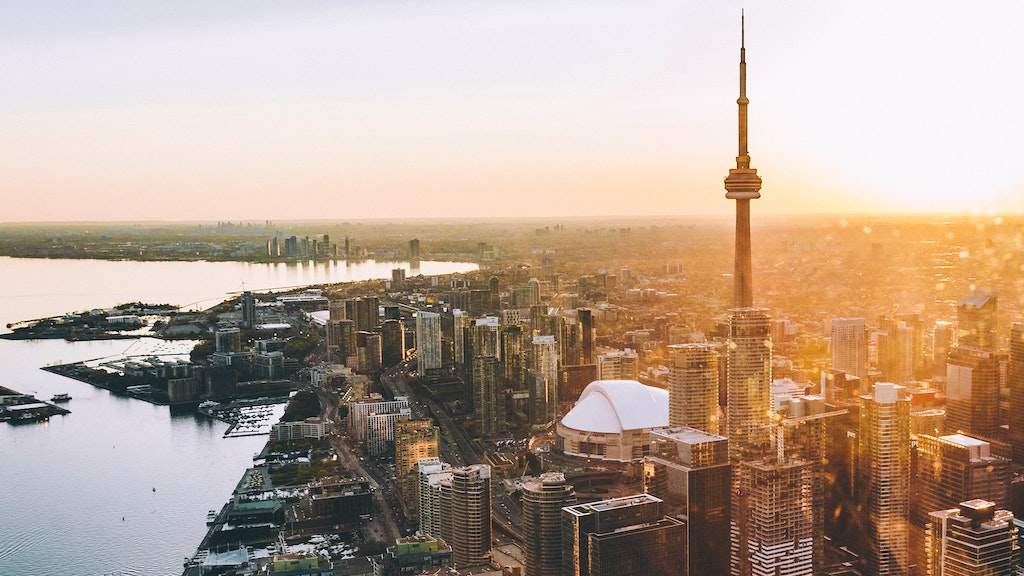Published
Tue, Nov 23, 2021, 13:40
- RA spoke with Cindy Li (AKA Ciel) and Bambi's owner Mikey Apples about how smaller venues are paying the price for Ontario's cautious approach.

The Canadian province of Ontario, home to Toronto, has delayed the reopening of nightlife for another 28 days from November 10th.
In a press release issued on Wednesday, November 10th, the province of Ontario, helmed by Conservative premier Doug Ford, paused the lifting of capacity limits on "high-risk settings" for a further 28 days. The news followed an uptick in Covid-19 cases centered in Toronto after Halloween.
November 15th was due to be Ontario's equivalent of "Freedom Day," with parties returning without capacity limits and a slew of smaller clubs and venues across the city finally reopening after almost two years of closure. As such, the delay is a particular blow to the dance music community in Toronto, which, as the producer, promoter and DJ Cindy Li (AKA Ciel) told Resident Advisor, "was the most locked down city in all of North America" for much of the pandemic.
Mikey Apples owns and runs the club Bambi's, a central node in Toronto's underground dance music ecosystem. "It's infuriating," he told RA. "[The Ford Government] is utterly indifferent to small business and the nightlife / hospitality industry that makes Toronto a city worth living in."
Apples added that the regulations don't seem to be following public health guidelines. "When the Ford government views packed sports arenas and big box stores as perfectly safe, while bars, restaurants, nightclubs and other small business retail are deemed high risk, is it really about public safety?"
Li voiced a similar sense of exasperation. "Meanwhile our sports stadium and hockey games are at 100 percent capacity," she said. "[It] doesn't feel like a form of caution—it's not like you get Covid-19 easier in a club than in a sports stadium […] To me, it's a double standard."
While Li acknowledges that government messaging has been as consistent as possible given the "novelty of the virus," Apples, as a small venue owner, feels an added level of frustration with Ford moving the goalposts without any warning.
"Not being able to plan months or even weeks ahead for anything knowing there is no rhyme or reason to any of the decisions being made by the province," he said. "I've certainly had enough. We all did our part to get to the point we're at: Covid-19 deaths have plummeted, we're past 80 percent double vaccinated, ICUs are no longer overwhelmed. What gives?"
Some parties have been happening in Toronto and Ontario throughout the summer and fall. Unlike in British Columbia and Quebec, Ontario hasn't enforced a dancing ban, and larger venues have been able to receive licenses for club nights. This has, however, exacerbated some of the inequities in the city's club scene: larger venues and promoters with the capacity to enforce social distancing have begun to reopen while small and medium clubs haven't. For promoters working on the fringes of legality, there's less incentive to take risks with lesser-known DJs, so they opt to book big names instead to guarantee financial security.
This has been a common complaint throughout the pandemic and it's easy to understand the increasing discontent. Li, however, offered a somewhat measured response, underlining that the disproportionate burden of Covid-19 hasn't been on DJs and nightlife workers, but on migrant workers in Southeastern Ontario. And while she's eager to return to the dance floor, she also wants to do so in a way that is safe.
"Our two biggest allies are two of the worst examples of how to deal with Covid-19: the United Kingdom and the United States," she said. "I don't look to them as an exemplary case of how to safely recover and reopen […] In Canada we are a lot more cautious."
Li and Apples agree that the Ford government has crossed too far over the threshold of cautiousness, with a particular vindictiveness aimed at nightlife. They're both trying to find a silver lining, and agree that the extra time away from clubbing has provided opportunities to refocus on what's important about nightlife in general. Unlike the accelerated return to normalcy in the US and the UK, Li still sees the promise of another type of dance floor on the horizon.
"I feel quite optimistic about how we will recover, what I've seen is a lot of ingenuity and a lot of visions," she said. "I believe, as a producer, that limitations are a catalyst for invention and innovation. The lockdowns took away the money aspect […] I am over the doom and gloom of thinking we'll never recover. Nightlife will never be what it was before Covid-19 and we should just accept that and take that as a positive because there were a lot of things that were really terrible before […] We can reimagine a new nightlife."
Photo: Mwangi Gatheca